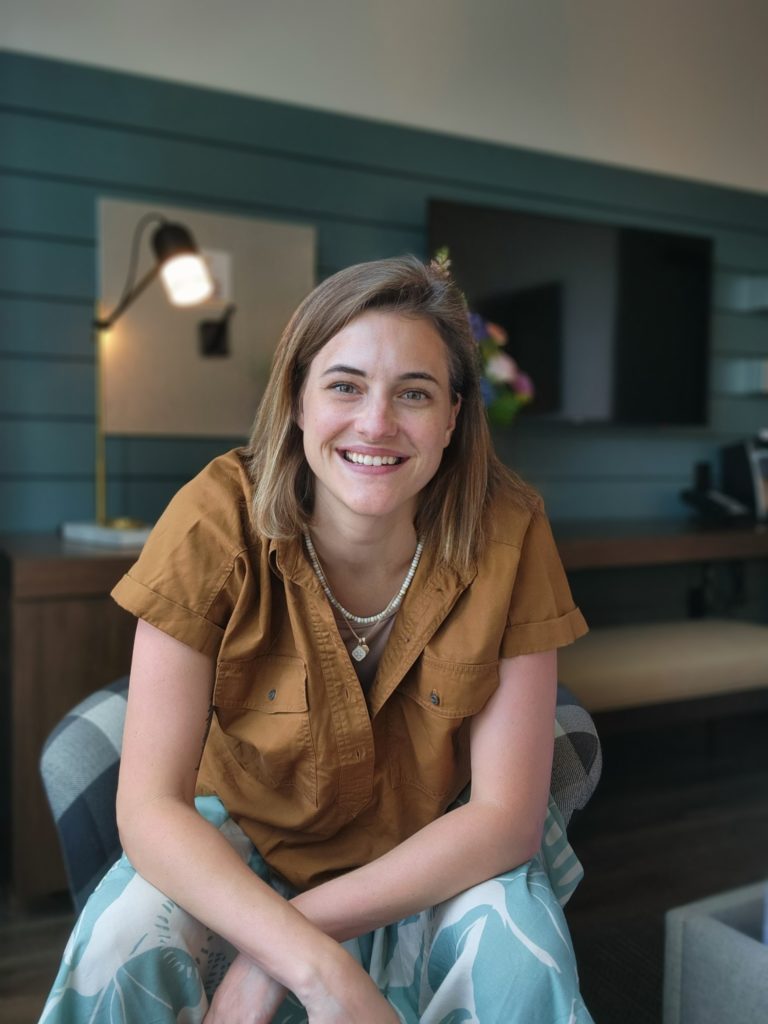Tech innovation is transforming mental healthcare. Every day, new tools are released to address some of the industry’s most persistent problems. Behavioral health tech pioneers are providing insights to help the entire behavioral health community improve access to care and increase treatment effectiveness. Eleos Health has the privilege of working with many of these pioneers, who bring a wealth of experience advancing mental health through technology innovation.
When we asked some of those leaders to share their thoughts on tech in behavioral health, here’s what they said:
Balancing the Promises and Perils of AI in Mental Health
“Our clinicians and our psychiatrists have more than enough things on their plate. I don’t want to introduce them to technology that’s only going to add more frustration or inefficiencies.”
Demetria Lister
Sr. IT Business Analyst at AllHealth Network
As the Senior IT Business Analyst at AllHealth Network, Demetria Lister is charged with ensuring that tech and treatment work seamlessly together. It makes sense that she’d be concerned about the vulnerabilities inherent in tech—like security or technical difficulties for clinicians.
Demetria says the potential of AI and digital therapeutics to revolutionize mental health care is immense, but it’s important to balance the need for accessible and efficient treatment with concerns about data privacy, ethical use of AI, and maintaining a human touch.
As we continue to explore the possibilities of technology in mental healthcare, we must also consider emerging challenges such as cybersecurity and compliance. In order to avoid adding frustration or inefficiencies for practitioners, adequate support and secure, efficient technology are crucial in the behavioral health space.
Training Clinicians on Technology in University Settings
“What we’re interested in is digital therapeutics. We want our clinicians to know how to bring in chatbots between sessions, to bring in other auxiliary digital therapeutics that will augment the work that they’re doing in their face-to-face sessions.”
Donna Sheperis, PhD
Professor, Associate Department Chair of Counseling & Director at Palo Alto University eClinic
Universities can and should play a pivotal role in equipping clinicians with the skills and knowledge necessary to incorporate technology into their practice. Donna Sheperis, PhD, Director of the eClinic at Palo Alto University, says there is a growing need for clinicians to learn how to effectively use digital therapeutics to augment traditional therapeutic models—a need that graduate schools can satisfy.
It seems obvious that universities should prioritize technology training for their students, given how prevalent technology is becoming in mental healthcare. Students graduating from behavioral health programs need to be ready to practice with today’s tools rather than having to spend their first few years of clinical work playing catch-up.
In order to set students up for success, Donna says, universities should provide them with comprehensive training that goes beyond the basics of telehealth tools like Zoom. Training should include digital therapeutics like chatbots, which can augment the work clinicians are doing in their face-to-face sessions.
Creating Flexibility in Treatment Methods
“If you think that the only way to deliver effective treatment is a 1-hour session once a week, you’ve lost already. First of all, that isn’t scalable, and apart from that, the data doesn’t support it.”
Dennis Morrison, PhD
Owner of Morrison Consulting
Dr. Dennis Morrison is a seasoned healthcare executive with over two decades of experience in clinical information technology and operations. As a former CEO of two award-winning companies and the first Chief Clinical Officer of a large Electronic Health Record (EHR), he has a unique perspective on the challenges and opportunities facing the industry today.
Now the owner of Morrison Consulting, Dr. Morrison is a huge proponent of challenging the care delivery status quo. He says that to improve efficiency and reach more people, mental health practitioners need to be more flexible with their tools and consider alternatives to individual outpatient therapy once a week. Group therapy, for example, is as effective as individual therapy for many clients.
He also points to new technologies like AI and digital therapeutics as areas where greater flexibility is needed—though cybersecurity, compliance, and the ability to keep a human touch are important factors to consider as technology becomes increasingly integrated into mental health treatment.
Leveraging Auxiliary Support in Remote Patient Monitoring
“For remote patient monitoring, we’ve found that therapists don’t have time to do it—they’re in appointments all day. If you’re going to have your therapists or other providers in an appointment-based world, you need some folks who are not in that world doing the monitoring of the actual data coming back in.”
Brandon Ward, PsyD
Chief Innovation Officer & VP of Information Systems at Jefferson Center
Remote patient monitoring has become a game-changer in providing a safety net for clients in crisis, but the responsibility for using it can’t all fall to therapists. Brandon Ward, PsyD, Chief Innovation Officer & VP of Information Systems at Jefferson Center for Mental Health, emphasized the need for care coordinators and other support personnel to monitor the data and provide chat support to patients.
Ward says therapists typically do not have time to monitor patients remotely because they are in appointments all day. While some therapists are able to chat in between appointments, it’s stressful and disruptive to their appointment-based workflow. Care coordinators or care managers who aren’t in appointments constantly should be available to monitor the actual data coming back in and to provide chat support to patients.
Closing Thoughts
In an industry changing as rapidly as mental health, it’s crucial to learn from those with first-hand experience. Their insights and expertise provide valuable guidance for the future of mental healthcare—and keep others from repeating mistakes unnecessarily. With behavioral health tech innovation becoming a major priority for organizations, Eleos is dedicated to continuing to work with, learn from, and provide a platform for leaders willing to share their hard-won insights with others.

